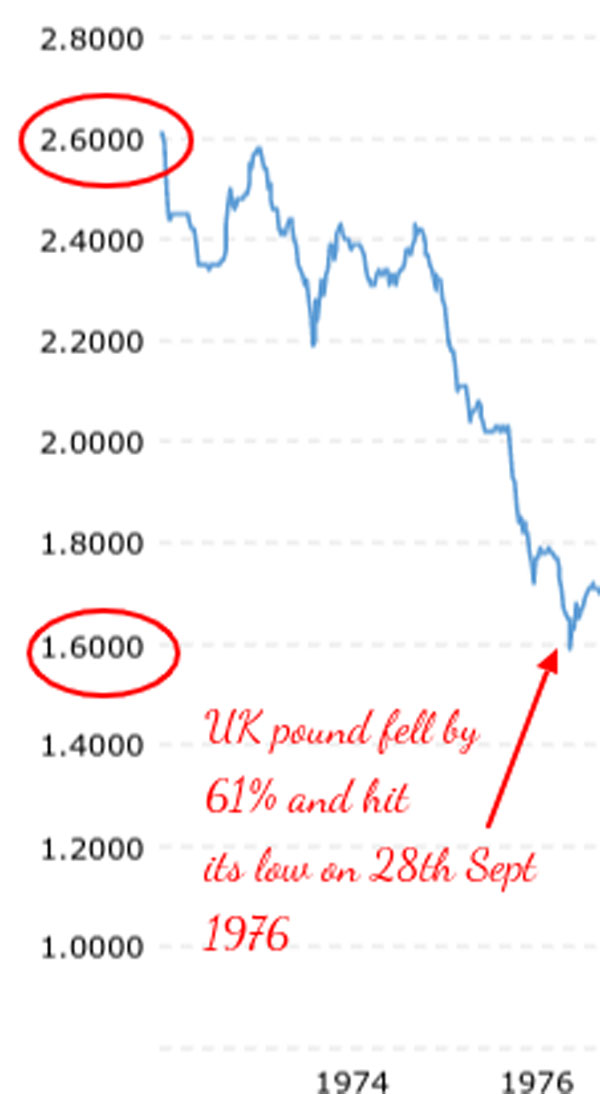The Secret Broker: The gilts are guilty of being guilty, your honour

The UK is famous for its comedy double acts. Picture: Getty Images
After 35 years of stockbroking for some of the biggest houses and investors in Australia and the UK, the Secret Broker is regaling Stockhead readers with his colourful war stories — from the trading floor to the dealer’s desk.
Well, haven’t we seen some turmoil in markets this week and especially in the UK.
There is no better time than during a market meltdown to learn a new technical trading term.
Remember a couple of weeks ago, when I wrote about how we managed to knock off the Bank of England’s broker’s top hat during a rogue game of trading floor cricket?
Well this week, he got a nuclear rocket straight up his rectum, which certainly did more than just ‘wrecked ‘im’ and his hat, which is now hurtling its way to Mars as I type.
However, this time it wasn’t us wayward lads sending the missile, it was his own Chancellor of the Exchequer who went rogue on him and pressed the red button.
In my day, the UK treasurers went by boring names like Gordon Brown and Geoffrey Howe. Today we have much more exciting names like Akwasi Addo Alfred Kwarteng aka Kwasi Kwarteng doing the job.
Incidentally he took over from the last chap, Nadhim Zahawi, who had to exit stage left, after it was revealed that his very wealthy wife had never paid any UK tax.
As we all know, the Prime Minister lives at number 10 Downing Street. You may not know this, but the Chancellor is allowed to live next door at number 11 Downing Street.
All I can think about is the smell of boiled tripe and chips ‘n egg wafting one way and Mrs Kwarteng’s fufu wafting the other.
No wonder Boris packed up his five, sorry, six kids with him and left.
Kwasi-capable
Anyway, the new technical market term we all learnt this week is Liability Driven Investment, or LDIs for those in the know.
I had never heard of this term, till the meltdown in UK government bonds (‘gilts’) made me sit bolt upright and take note.
Digging a bit deeper on how a mini budget can trigger a nuclear bomb up the Bank of England’s jacksy, I discover that an LDI is actually a hedge used by pension funds to meet their future monthly payments.
Their monthly outward payments become termed as ‘future liabilities’ in these pension funds and LDIs are needed to create a ‘glide path’ for future payments instead of putting up with lumpy turbulence and the unknown.
In other words, the pension funds have to predict what they need to pay out in the future, without dipping into the capital they hold for investments.
Thanks to modern science, everyone is pilled up and living longer and if they are in a pension fund, no one knows how long they could now live for and when their payments are no longer needed.
Future payments need to be planned and estimated and this is where LDIs come into play.
In a salute to Lehman Brothers getting caught in derivative plays and causing the GFC, this week almost saw the same thing happen, not to an upstart bank but to the very staid institutions of pension funds.
Due to the Bank of England’s intervention, a meltdown disaster of the same GFC proportion was diverted when the buckets and lifeboats were deployed.
UK government bonds are not meant to move that much on a daily basis, but when Kwasi Kwarteng presented his mini budget, all hell broke loose.
Bond prices collapsed and yields jumped from 4% to 5% in a single day, as pension funds scrambled to meet margin calls, created by their LDI strategies.
Imagine a boring old bespectacled gentleman. Bow tie, tank top clearly visible under his shirt.
Well that is the manager type who is in charge of helping those pension funds have a smooth ride – and this meltdown was never meant to appear in their world.
What is really interesting in all of this is that the guy who wrong-footed himself and the markets has actually written a historical book on this very subject.
‘Reckless financial moves by governments and how to avoid them’ is the subject of the book.
The official title of his book is: War and Gold: A Five-Hundred-Year History of Empires, Adventures and Debt review – a comprehensive study of money and society.
How’s that for pompous?
When the Guardian reviewed this book, the reviewer wrote this at the very end and it’s pure poetry in motion, something that you couldn’t make up.
‘If there is light in this dark cloud, it comes from the author himself. Politicians have often been criticised for lacking a long view of history. This exhaustive and convincingly argued history of money comes from an author whose day job is to sit in the House of Commons. Kwarteng might not know how to stabilise a financial system that floats on credit, but he certainly understands the forces and the mistakes that have led to that destabilisation.’
That was Anthony Sattin on Monday, May 12, 2014.
After Kwarteng’s mini budget disaster, the Bank of England said this:
‘Were dysfunction in this market to continue or worsen, there would be a material risk to UK financial stability. This would lead to an unwarranted tightening of financing conditions and a reduction of the flow of credit to the real economy.’
‘Flow of credit to the real economy’! That’s exactly what his book on history was all about!
Priceless. But wait, there’s more!
The Bank of England announced this scramble for the life rafts on September 28. And on the exact same date in 1976, 46 years earlier to the day, this happened to the then Chancellor:
‘Denis Healey arrived at London’s Heathrow airport on his way to the International Monetary Fund annual meetings. Waiting in the VIP lounge, gin-and-tonic in hand, the UK chancellor of the exchequer learned that the pound was plunging. Healey headed back to the Treasury and announced that Britain was applying to the Fund for a record $3.9bn loan. The British government, observed the Economist, ‘is bust’.’

So history is repeating itself on the exact same date? Probably something that the book author should have been aware of.
That same exchange rate hit 1.05 after the resident at Number 11 stopped moving his lips, 45 years and 362 days later.
I can feel a revised version of his book coming out with a new chapter, titled ‘Who needs Putin, when I’m in charge’.
Keep calm and eat more beef
Seriously though, this type of action and reaction is not something we all need right now.
Sure things in Australia aren’t as bad as in Nigeria, where they just raised interest rates to 22% and long dated UK interest rates are higher than Australian rates for the first time in my living memory, but things don’t feel good.
I am battening down the hatches, stocking up on the o’seas luxury items like cigars and whisky, keeping to as many Australian items as we can, like wine and beef, and thinking about currency exposure from a portfolio point of view.
We all have to make the best of what we have got over here.
The only other thing that I shall be ordering from overseas is a copy of said book, as I need a new door stop and couldn’t think of a better use for it.
I’m not coming out until September 28, 2023!
The Secret Broker can be found on Twitter here @SecretBrokerAU or on email at [email protected].
Feel free to contact him with your best stock tips and ideas.
UNLOCK INSIGHTS
Discover the untold stories of emerging ASX stocks.
Daily news and expert analysis, it's free to subscribe.
By proceeding, you confirm you understand that we handle personal information in accordance with our Privacy Policy.








